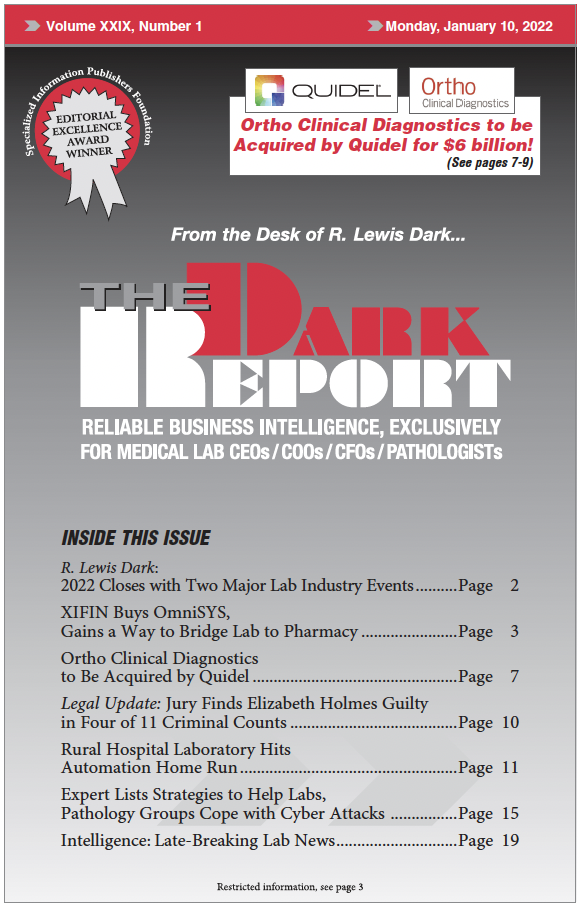CEO SUMMARY: Class action lawsuits filed by patients whose protected health information (PHI) was breached during a cyber attack may be one additional unwelcome consequence for clinical laboratories and anatomic pathology groups hit by a ransomware or cyber attack. This is what happened to ReproSource Fertility Diagnostics, a subsidiary of Quest Diagnostics. An expert offers […]
To access this post, you must purchase The Dark Report.


